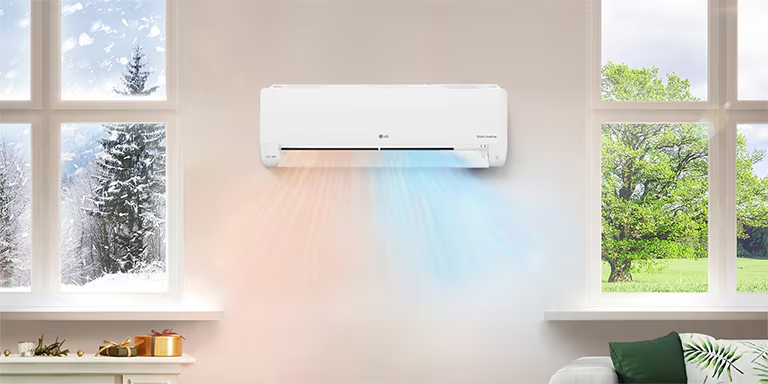When summer hits and the temperature rises, there’s nothing quite like stepping into a perfectly cooled room. But if your air conditioner isn’t up to the task—or you’re buying your first one—the decision can feel overwhelming.
With energy efficiency, smart features, and budget concerns in the mix, choosing the right unit is more about cooling smarter than just harder. In this guide, we’ll break down what to consider when buying an air conditioner in 2025 so you can make the smartest choice for your home.
Understanding the Different Types of Air Conditioners
Before you dive into brands and features, start with the basics: what kind of air conditioner do you need? Here’s a quick overview:
1. Window Air Conditioners
These are compact units designed to sit in your window frame. They’re best for single rooms and are generally the most budget-friendly option.
2. Portable Air Conditioners
Great for renters or smaller spaces, these units can be moved from room to room and vent through a window via a hose.
3. Split-System (Ductless) Air Conditioners
These have an outdoor compressor and an indoor unit. They’re ideal for homes without ductwork and offer high efficiency and quiet operation.
4. Central Air Conditioning
Perfect for cooling entire homes, these systems distribute air through ductwork and require professional installation.
5. Smart Air Conditioners
Smart ACs fall into any of the above categories but come with Wi-Fi connectivity and app-based control for added convenience and energy savings.
Key Factors to Consider Before You Buy
1. Room Size and BTU Rating
BTUs (British Thermal Units) measure how much heat an AC can remove from a space per hour. The size of the room should dictate the BTU capacity you need.
| Room Size (sq. ft.) | Recommended BTUs |
|---|---|
| 100–300 | 5,000–7,000 |
| 300–500 | 8,000–12,000 |
| 500–800 | 14,000–18,000 |
| 800+ | 20,000+ |
Too little power, and the AC will struggle. Too much, and it’ll cycle on and off inefficiently, wasting energy.
2. Energy Efficiency (EER & SEER Ratings)
Look for EER (Energy Efficiency Ratio) or SEER (Seasonal Energy Efficiency Ratio). The higher the number, the more efficient the unit. Bonus: efficient models often qualify for rebates.
Pro tip: Look for ENERGY STAR certified air conditioners. They use 10% to 30% less energy than non-certified models.
3. Installation Requirements
Window and portable units are mostly DIY-friendly. However, split systems and central ACs need a professional install. Make sure you have the correct electrical setup and space to accommodate the unit.
4. Noise Level
No one wants an AC that sounds like a jet engine. Check the decibel rating—anything under 50 dB is considered quiet and suitable for bedrooms or offices.
5. Smart Features
Modern ACs offer more than just cooling. Look for features like:
- Wi-Fi control
- Voice assistant compatibility
- Geofencing and scheduling
- Energy usage tracking
These can dramatically increase comfort and reduce utility costs.
Top Air Conditioner Brands to Consider in 2025
While many brands offer quality air conditioners, a few stand out for performance, durability, and smart features.
1. LG
Known for sleek, smart ACs with voice control and energy monitoring. Their dual inverter technology also boosts efficiency and reduces noise.
2. Midea
Offers highly-rated window and portable units with built-in Wi-Fi and app controls at an affordable price.
3. Daikin
A leader in ductless mini-splits, Daikin’s systems are quiet, efficient, and built to last.
4. Carrier
A top choice for central AC systems, Carrier is known for premium quality, reliability, and extensive service networks.
Budgeting for Your New AC
Prices vary based on the type and size of air conditioner:
- Window AC: $150 – $600
- Portable AC: $200 – $700
- Ductless Mini-Split: $800 – $3,000+ (plus installation)
- Central AC: $3,000 – $7,500+ (including installation)
Don’t forget to factor in:
- Installation costs
- Maintenance (like filter replacements)
- Monthly energy bills (opt for efficient models to save long-term)
FAQs About Buying an Air Conditioner
1. What’s better: a portable or window AC?
Both are good for single rooms, but window units are more energy-efficient and powerful. Portable ACs offer flexibility and are easier to install.
2. Can I install a split AC myself?
Unless you’re a licensed HVAC technician, it’s best to leave this one to the pros. Incorrect installation can void warranties and affect performance.
3. How long does a typical AC last?
With proper maintenance, most air conditioners last:
- Window/Portable Units: 8–10 years
- Mini-Split Systems: 10–15 years
- Central ACs: 12–20 years
4. Do smart air conditioners really save money?
Yes! Smart ACs allow you to schedule usage, control temps remotely, and monitor energy consumption—cutting down waste and lowering bills.
5. What maintenance does an AC require?
Basic tasks include:
- Cleaning/replacing air filters monthly
- Wiping down coils
- Checking refrigerant levels (for central/split systems)
- Annual professional servicing
Conclusion
The perfect air conditioner does more than just blast cold air—it fits your space, budget, and lifestyle. Whether you’re looking for something small and simple or investing in a whole-home system, today’s market offers smarter, more efficient options than ever before.
Focus on size, efficiency, features, and comfort, and you’ll end up with a unit that keeps you cool without breaking the bank—or the planet. So before the next heatwave hits, use this guide to make a smart choice and chill out in style.


